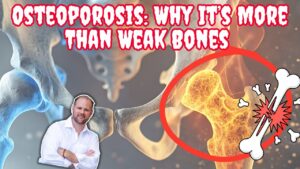Why Triglycerides Matter for Your Health
Let me tell you a story, my friend. Have you ever left the doctor’s office feeling relieved that your cholesterol levels are just fine? Well, hold on just a second. There’s one important marker that your doctor may have overlooked – triglycerides.
Triglycerides are a critical marker that you need to know about, and let me show you why. Take a look at this client’s lab results on triglycerides – their level is 184, above the recommended range of less than 100.
But why do high levels of triglycerides matter? When you consume too many carbohydrates, your glucose levels increase, which then travels to your liver, converting it into triglycerides. And if your triglycerides level is high, it’s a clear indication that you may be consuming too many carbs.
That’s why knowing your triglyceride levels is just as important as knowing your cholesterol levels. It’s a simple way to test if you’re consuming too many carbs, and can provide an important marker for your overall health.
Take Action for Better Health
So, my friend, if you’re concerned about your health, take a look at your triglyceride levels and take action to improve your diet and overall well-being. It’s time to cut down on those carbs and prioritize your health.
Frequently Asked Questions (FAQ)
Triglycerides are a type of fat (lipid) found in your blood. They store unused calories from your diet and provide your body with energy. While many standard lab ranges mark anything below 150 mg/dL as "normal," a functional or optimal health perspective recommends a level under 100 mg/dL. This stricter target is because levels above 100, even if technically "normal," can be an early sign of metabolic issues, particularly an overconsumption of carbohydrates that the body is converting into fat.
The process is metabolic. When you eat more carbohydrates (especially refined carbs and sugars) than your body can immediately use for energy, the excess glucose is sent to the liver. The liver then converts this surplus sugar into triglycerides, which are packaged and stored as fat. Therefore, a high triglyceride level is a direct biomarker that you are likely consuming more carbs than your body can efficiently process.
The most effective way to lower triglycerides is by reducing your intake of refined carbohydrates, sugars, and alcohol. Focus on a whole-foods diet rich in fiber (vegetables, legumes), healthy fats (avocado, olive oil, nuts), and lean protein. Regular aerobic exercise also plays a crucial role by helping your body use glucose for energy instead of converting it to fat. These lifestyle changes directly address the root cause of high triglycerides.







